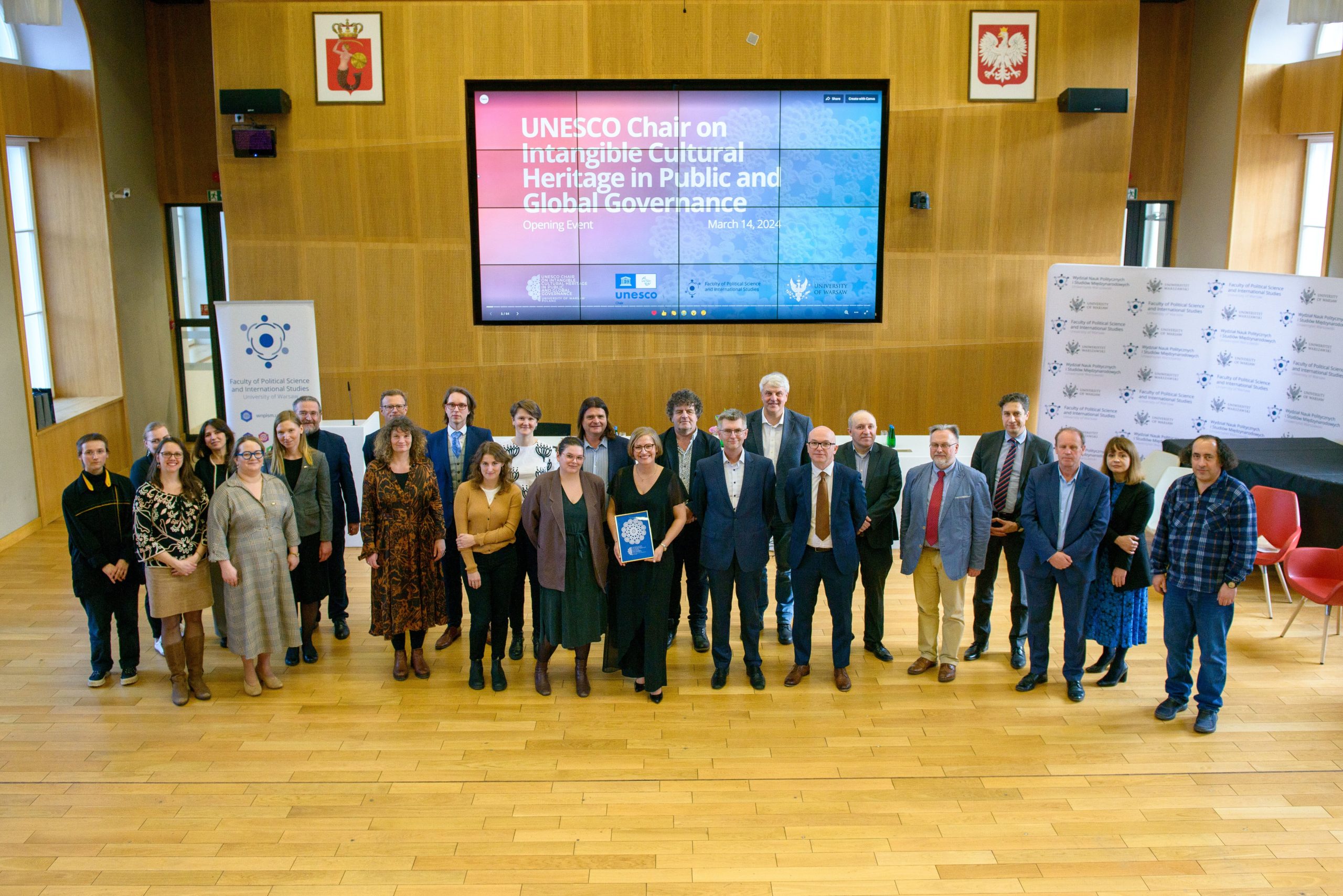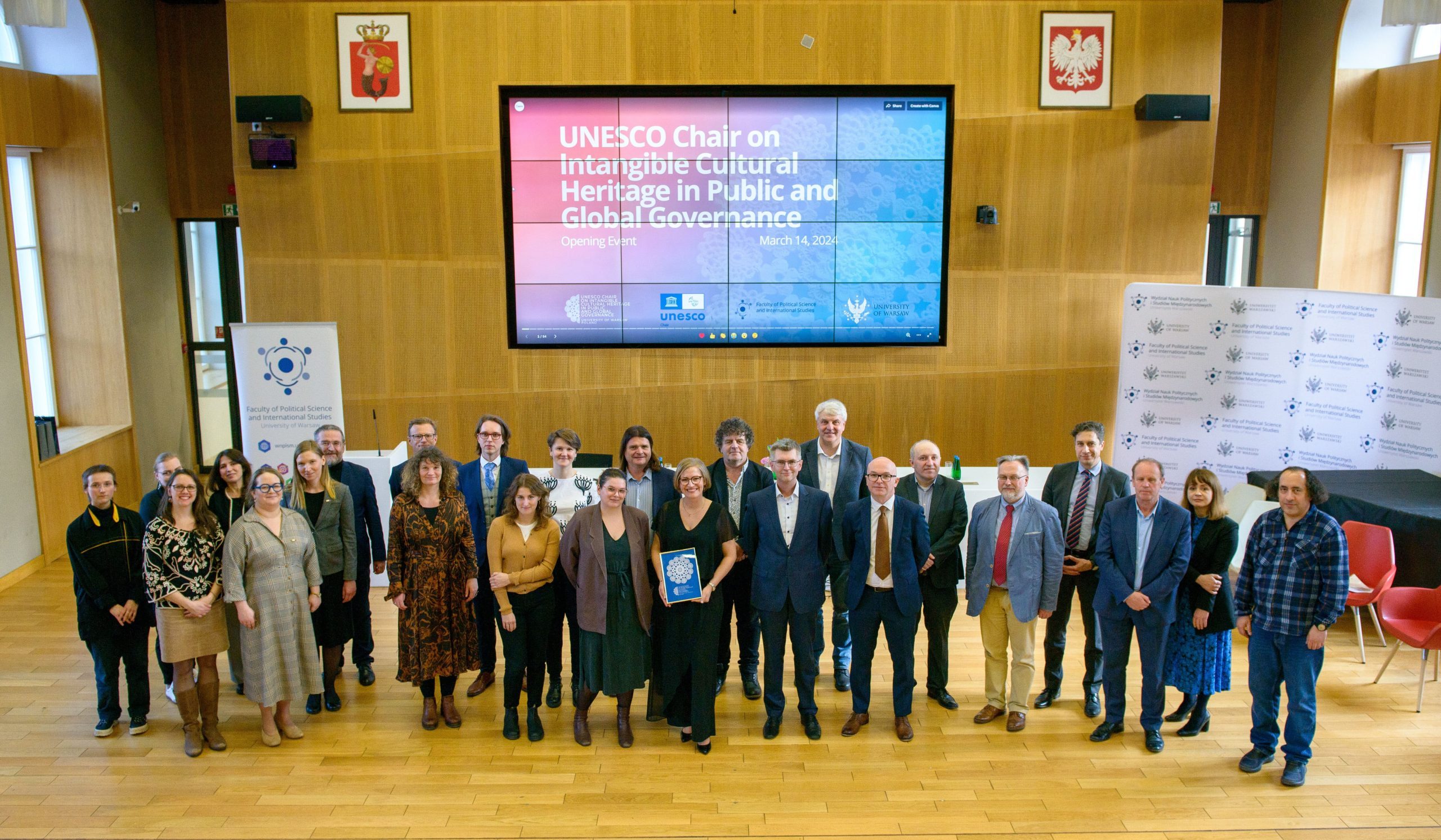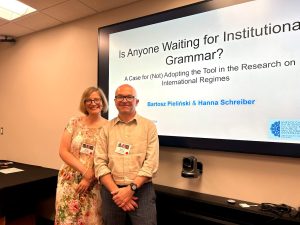On March 14, 2024, on the Faculty of Political Science and International Studies, University of Warsaw), the official opening of the UNESCO Chair on Intangible Cultural Heritage in Public and Global Governance took place. During the event, prof. Hanna Schreiber was officially nominated the Chair Holder.
The event was graced by the presence of distinguished guests including Prof. Alojzy Z. Nowak – Rector of the University of Warsaw, Prof. Zygmunt Lalak – Vice-Rector of the University of Warsaw, Mr. Jakub Wiśniewski – Deputy Director of the Monument Protection Departament in the Ministry of Culture, who read the letter from Bożena Żelazowska, Secretary of State at the Ministry of Culture and National Heritage, Ambassador Mariusz Lewicki – Permanent Representative of the Republic of Poland to UNESCO in Paris, Prof. Andrzej Szeptycki – Undersecretary of State at the Ministry of Science and Higher Education, Prof. Michał Kleiber – President of the Polish National Commission for UNESCO, Mr. Matteo Rosati – Officer in Charge, Culture Unit, UNESCO Regional Bureau for Science and Culture in Europe, Mr. Waldemar Majcher – President of the Association of Folk Artists, Dr. Artur Jóźwik – Director of the Culture Department of the Capital City of Warsaw, Prof. Jakub Zajączkowski – Dean’s Representative for International Cooperation and Research Programs, Faculty of Political Science and International Studies. The official part of the event was led by the Dean of the Faculty of Political Science and International Studies, Prof. Daniel Przastek.
The second part of the event was marked by lively discussions on issues related to the governance of intangible cultural heritage, both public, globally and in urban contexts, as well as on the role artificial intelligence can play in those processes.
The aim of the UNESCO Chair on Intangible Cultural Heritage in Public and Global Governance at the University of Warsaw is to reflect on the question of what is considered – under what conditions and by whom – as constituting effective, ethical and sustainable governance of ICH. The interdisciplinary team within the department aims to investigate fundamental questions such as: how should a given community – including international community – govern heritage resources? When heritage resources are considered to be public goods or the commons – and when they are not? What are the criteria for effective and ethical heritage governance? What will be the most appropriate tools and methodologies to address these issues, including those stemming from artificial intelligence? Examination of the challenges and opportunities surrounding the public and global governance of intangible cultural heritage, contextualized within frameworks such as the MONDIACULT 2022 Declaration, Agenda 2030 and UNESCO’s Midterm Strategy 2022-2029, and recommendation Ethics in AI will be of special focus.
Photorelation and more details can be found on the official UNESCO Chair webpage. All interested parties are encouraged to follow the further activities of the UNESCO Chair on www.ICHgovernance.com and on our LinkedIn profile.


